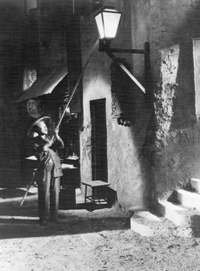Wednesday, 15 September 2010
Written by Urbanatomy, That's Shanghai
In 1946, George Orwell wrote an essay entitled Why I Write detailing the reasons why he put pen to paper. In this, our continuing Web series, we talk to China authors about their literary habits and reading preferences, and examine Orwell's question which lies at the heart of being an author – why they write.
Frank Dikötter was Professor of the Modern History of China at the School of Oriental and African Studies, University of London, for many years before moving to Asia as Chair Professor of Humanities at the University of Hong Kong. He has pioneered the use of archival sources and published nine books that have changed the way historians view modern China, from the classic The Discourse of Race in Modern China (Stanford University Press, 1992) to his last book entitled Mao's Great Famine: The History of China's Most Devastating Catastrophe (Bloomsbury, 2010).
Why I write
I write because I enjoy creating something new. A writer, for me, is an architect who builds with words, sometimes a small shed, occasionally a mansion, possibly even a monument.
Do you write every day? If so, how many hours?
Writing is a painstakingly slow but very regular process for me. I write almost every day, always in the morning. I never stop looking for better words and keep a little notebook in which I jot down phrases or word pictures. I have a study with a beautiful view of the South China Sea, with green islands in the distance and the ceaseless transit of container vessels that spread 'made in China' to the rest of the world.
Worst source of distraction?
Noise.
Best source of inspiration?
Other historians. In writing Mao's Great Famine I found inspiration in books on Hitler's Germany and Stalin's Russia which combine impeccable scholarship with a narrative style that draws the reader into the heart of some of humanity's worst horrors. Saul Friedländer's Years of Extermination is a good example, and so is Simon Sebag Montefiore's Stalin: The Court of the Red Tsar.
How often do you get writers' block/doubt your own ability?
I live with doubt all the time, but I use it as a spur to try to do better.
Contemporary writer in any medium who you never miss?
I wish I had time not to miss anything my favorite writers publish.
Favorite Chinese writer?
Right now that would be Yang Xianhui, whose haunting, sparse tales of survival from a labor camp during the famine are based on decades of work tracking down and interviewing survivors. Everybody should read his Woman from Shanghai.
Best book about China?
Li Zhishui's portrayal of Chairman Mao.
Favorite book?
I have too many favorite books to nominate a single one, but I think Friedrich Hayek's Road to Serfdom should be required reading for anybody interested in the history of the People's Republic, even if it says nothing about China and was published before 1949.
Favorite writer?
My favourite writer used to be Dostoevsky. Now they change all the time.
The book you should have read but haven't?
I tried The Plague by Albert Camus several times but never managed to finish it.
You look back at the first thing you had published and think…
I would like to rewrite that!
How did you get started writing?
I started writing in English when I arrived at the University of London as a postgraduate student in 1987. But my love of words and books goes back to lone excursions into my parents' library when I was a small boy.
Does writing change anything?
Writing is thinking and recording, it changes everything... when there are readers.
What are you working on now and when is it out?
I am looking at how people of all walks of life actually experienced 'liberation' in China from 1949 to 1957, a much neglected period of modern China. I hope to be ready in a couple of year's time.
